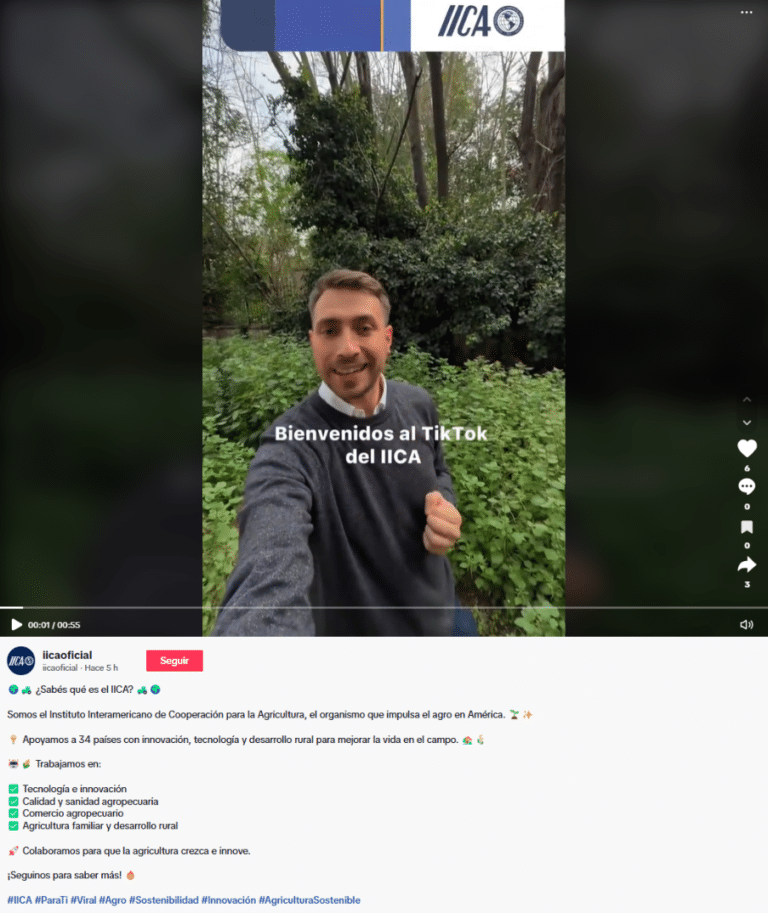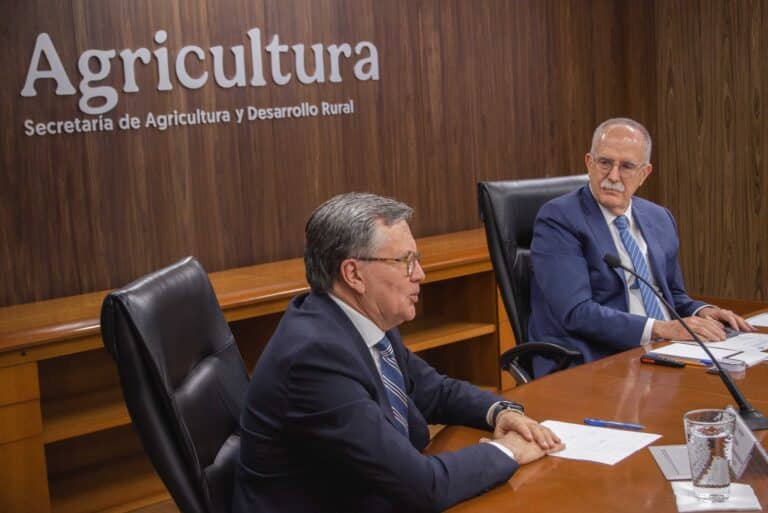This proposal was made by the former Minister of Agriculture of Brazil Roberto Rodrigues, one of the leading experts in cooperativism, who addressed more than 40 authorities from 21 countries of all regions of the Americas, as part of the First Meeting of Leaders of Rurality of the Americas convened by the Inter-American Institute for Cooperation on Agriculture (IICA).

San José, 24 April 2024 (IICA). Cooperativism is the key to progress for smallholder farmers in the Americas and the way forward to access markets, scale-up production, improve their economic income and stay relevant in agricultural activity, transforming the lives of their families and fostering the development of rural territories.
This proposal was made by the former Minister of Agriculture of Brazil Roberto Rodrigues, one of the leading experts in cooperativism, who addressed more than 40 authorities from 21 countries of all regions of the Americas, as part of the First Meeting of Leaders of Rurality of the Americas convened by the Inter-American Institute for Cooperation on Agriculture (IICA).
Rodrigues explained in the dialogue, which included the presence of family farmers, medium-sized producers, peasants, members of indigenous communities, teachers, promoters of cooperatives, students, community leaders, promoters of agricultural innovation and technology and activists for a leading role of women and youth in agriculture, that the globalization of the economy has generated a level of competition that poses great risks for small and medium-sized producers, “to the point of possibly disappearing from the markets.”
“Developed countries solved this problem a long time ago through protectionism, credit subsidies, and agricultural prices; smallholder farmers are more exposed to difficult competition, and must look for tools such as associativism and cooperativism to guarantee their existence and progress in the markets,” stated the current coordinator of the Agribusiness Center of the São Paulo School of Economics, part of the Getúlio Vargas Foundation .
In his conversation about the challenges for associativism and cooperativism, Rodrigues, who is an IICA Chair in agribusiness, explained that cooperativism “is a doctrine”, and plays a role in providing goods and services, while facilitating access to food and financing, enabling conditions for the insertion of family producers into international markets, enhancing competitiveness and value added, ensuring the functioning of marketing schemes and focusing on improving the living conditions of its associates and communities, especially in rural areas.
Likewise, it is crucial to promote education and technical assistance, promote gender equality and protect the environment. “It allows the scale that the rural producers lack, to become stronger together with their fellow cooperative members. That fact has been increasingly recognized,” he said.
In the talk, he cited the example of his country, Brazil, where agricultural cooperatives already account for 54% of rural production. “It is more than half. One characteristic is that 80% of the members of the cooperatives are small or medium producers with medium- or small-sized rural properties, of more or less 100 hectares. With these cooperatives, they are all together transformed into one large producer that competes on equal terms with the other major players”, he explained.
The professor was clear in pointing out to the Leader of Rurality of the Americas that creating cooperatives is not an “easy” task, and that these initiatives must meet three essential conditions from the beginning: “that the community feels the need for a cooperative; the sentiment that Cooperative is a business and must therefore be economically viable; and an associative spirit and strong leadership. If one of these elements is missing, you cannot create a cooperative,” he stated.
He added that transparency and loyalty or sense of belonging of those who make up a cooperative are vital for scaling up in markets and to ensure the social advancement of its members.
“Cooperativism has not grown much because there is a lack of cooperation, a lack of education, a lack of understanding of what cooperativism really is, which is why this First Meeting of Leaders of Rurality of the Americas is so important. It is a participatory event that allows the exchange of experiences between participants and brings people and participants from different rural regions of the countries of the Americas closer together,” Rodrigues concluded.
More information:
Institutional Communication Division.
comunicacion.institucional@iica.int











